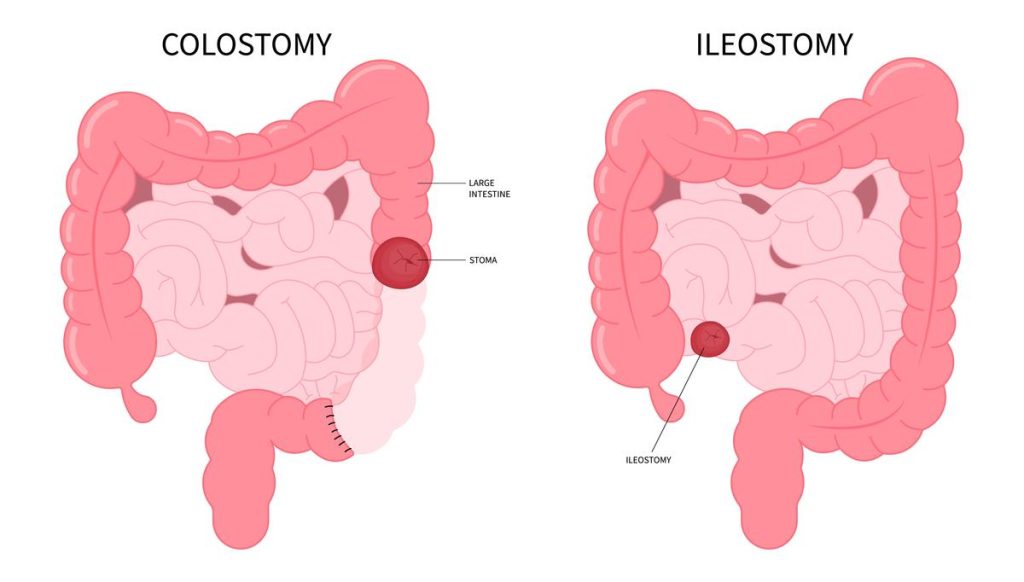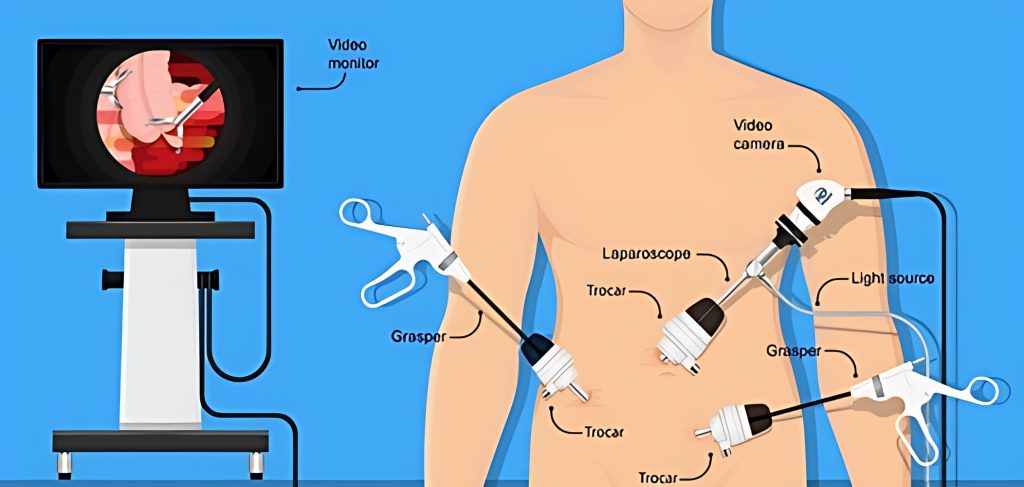Colectomy Surgery (Bowel Resection)
A colectomy is a surgical procedure where a portion or the entirety of the colon is removed. It is also known as colon resection surgery. This procedure may be necessary if a person’s colon is no longer functioning properly or if it is affected by a condition that cannot be cured and puts other organs at risk. Some common reasons for needing a colectomy are colon cancer and inflammatory bowel diseases.

Reasons for the procedure
If colon cancer is detected in its initial phases, a colectomy is typically performed. However, if the cancer has progressed beyond the early stages, a more extensive colectomy may be considered as a possible treatment option.
If your healthcare provider determines that a colectomy is necessary, it is because they believe it will maximize your chances of survival or enhance your overall well-being.
Types of colectomies
The specific variations of colectomies are defined based on the portion or extent of the colon and rectum that is being extracted.
Hemicolectomy involves the surgical removal of either the descending colon, which runs down the left side, or the ascending colon, which travels upward on the right side.
During subtotal colectomy, a portion of the colon is surgically extracted, while the rectum remains untouched by the doctors.
Proctocolectomy involves the surgical removal of both the colon and the rectum by doctors.
Total abdominal colectomy: Surgeons extract the entirety of the large intestine, and subsequently connect the small intestine directly to the rectum.
In a diverting colostomy, medical professionals connect the digestive system to a hole in the belly wall known as a stoma, through which waste can pass.
What happens before surgery?
Prior to undergoing any surgical procedure, an individual will go through a series of tests, engage in discussions, and receive guidance.
Tests
Prior to the surgical procedure, an individual will be subjected to a range of tests and evaluations, which could encompass:
- blood work
- abdominal or chest X-rays
- CT scans
- ultrasound scans
- urinalysis
In order to provide effective medical care, a surgeon must be informed about the individual’s complete medical background, which encompasses previous significant illnesses, ongoing health conditions, and any existing symptoms. It may also be necessary for the surgeon to inquire about any attempted home remedies and the usage of medications by the person.
Before their surgery, a healthcare professional might suggest that individuals who smoke attempt to quit smoking in order to minimize the chances of developing lung infections following the procedure.
How colectomies are performed

Surgeons have two methods for performing colectomies.
Open colectomy involves the surgeon creating a lengthy cut and accessing the abdominal cavity.
In laparoscopic-assisted or robotic-assisted colectomy, the doctor creates tiny openings in the abdomen to introduce surgical instruments and a camera.
The time needed for recuperation is usually longer for an open colectomy, but regardless of the type, the hospital stay typically lasts between two and seven days.
During the procedure
Here is what to expect during surgery:
- For the surgery, you will be given general anesthesia, which is a type of medication that induces a state of sleep throughout the procedure.
- In an open colectomy, the surgeon will create a lengthy incision on the abdomen, while in a laparoscopic-assisted colectomy, they will make multiple smaller incisions.
- The colon will undergo a partial removal by the surgeon.
- Either the two open ends of the colon will be connected or a stoma will be formed.
- Surgeons typically extract a minimum of 12 lymph nodes located in close proximity to the cancerous area.
- After the surgery is completed, the cut is stitched up.

What happens after colectomy surgery?
After your surgery, you will be required to remain in the hospital for a period of time while you recover. The duration of your stay can range from two days to a week, depending on the type of operation you underwent and your progress. Throughout this period, you will be:
- Kept under observation for any indications of adverse effects stemming from the operation.
- Slowly and gradually reduced your reliance on pain medication.
- Fed with a liquid diet or soft diet.
- Awaiting the resumption of bowel movement.
Additionally, you will be provided with guidance on self-care practices upon your return home. This may involve:
- Wound care.
- Ostomy care.
- Dietary advice.
How long does it take to recover?
Unless there are complications, the typical length of stay in the hospital for laparoscopic-assisted or open colectomies is usually 3 to 4 days.
Individuals who suffer from vomiting, feeling of sickness, or difficulty in urinating might require an extended duration of hospitalization.
Once an individual has their initial bowel movement subsequent to a surgical procedure, typically occurring within a span of 3 to 4 days, they are able to resume their regular eating habits.
Most individuals resume their normal routines within a timeframe of 1 to 2 weeks after laparoscopic-assisted surgery and 2 to 3 weeks after open surgery.
After colectomy surgery, individuals should refrain from participating in activities that require a lot of physical exertion, exercising, and lifting objects over 10 pounds for a period of 4 to 6 weeks.
When should I call the doctor?
Once you return home, make sure to contact your care team if you encounter any of the following:
- Vomiting
- Diarrhea
- Fever over 101℉ (38°C)
- Swelling in your abdomen or legs
- Constipation for more than four days
- Black, tarry or bloody stools
- Chest pains
- Shortness of breath
- Modifications in the area where your surgery took place, such as the presence of redness or bleeding.
Treatment in Türkiye:
The medical staff of surgical teams, doctors and consultants in Rehab Türk can provide the best treatment options and free consultations – by striving to keep abreast of the latest medical technologies and methods.
